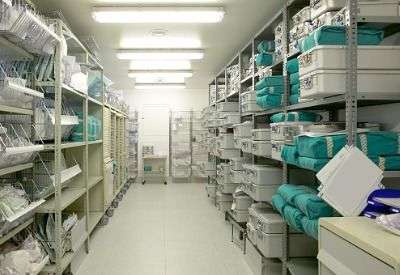Interviews & Expert Perspectives
 June 7, 2022
June 7, 2022
During the height of the Covid-19 pandemic, many healthcare workers were furloughed and many voluntarily left their posts permanently due to concerns of potential viral exposure. This contributed to the overall jump in unemployment claims from all industries. What is often overlooked, however, is that within the healthcare sector itself, this impact on the labor market was not evenly distributed among all types of roles.
 March 11, 2022
March 11, 2022
A commonly cited obstacle is confusion on how the CMS guidelines translate into real-life activity. This series aims to illuminate the boots-on-the-ground logistics to empower practice managers with a basic framework for assessment of the potential value-added within their own practice.
 November 18, 2021
November 18, 2021
This article aims to help give practice managers a framework for how to wrap their heads around the RPM/CCM code workflow, so they may better decide if it makes sense to take the next step and run a pilot program of their own.
 September 27, 2021
September 27, 2021
The health care supply chain is the backbone of the modern health care system. It ensures that providers and patients have the resources they need when they need them. As in any supply chain, health care supply chain leaders need to have a keen sense of business acumen, optimizing for efficiency, logistics, cost, and resiliency.
 August 3, 2021
August 3, 2021
Assisted living communities provide long-term care to those who need a little extra help, offering support and services to residents while also preserving as much of their independence as possible.
 July 15, 2021
July 15, 2021
The master of healthcare administration (MHA) degree provides professionals with the credentials and educational background for roles in healthcare leadership, across all types of health-related organizations. In a matter of two to three years of both formal education and hands-on field experience, graduating with an MHA degree will provide invaluable skills in management, data analytics, and operating performance—all of which are required to succeed in today’s healthcare environment.
 June 21, 2021
June 21, 2021
When you think of telemedicine or telehealth, you probably think of Zoom calls with your physician or therapist. But the term has actually been around since the mid-20th century, when radios were used to provide medical advice for patients on ships, and two-way televisions were first used to conduct video consultations.
 June 8, 2021
June 8, 2021
Healthcare risk managers are often the go-to professional in a crisis, acting as a liaison between providers, patients, families, organizational leaders, and the community. Effective healthcare risk management saves lives, prevents errors, lowers costs, optimizes outcomes, and boosts public health. On the heels of the Covid-19 pandemic, it’s never been more important.
 May 18, 2021
May 18, 2021
Imagine a future where hospitals and health systems share responsibility with the community and cross-sector partners in addressing social determinants and social risks. This means all are working together to break down silos, consolidate and organize resources for collective action, identify evidence-based strategies, and share best practices to bring those strategies to scale.








